2023–2025 Governing Board Election Slate
President-Elect | Secretary | Student Member-at-Large | Member-at-Large
We invite you to make your voice heard in the future of the Federation. Voting is now open for the 2023–2025 CERF Governing Board to elect our next President-Elect, Secretary, Members-at-Large, and Student Member-at-Large. Only one individual will be elected to each position except Member-at-Large, for which we are electing two individuals.
An online voting form was sent to all eligible voting members. The deadline to submit your votes was 29 June 2023.
These dedicated CERF members have carefully considered how they can best contribute to the future of the Federation. We urge you to carefully review their statements and take time to vote on CERF’s future leadership. On behalf of the current and future Governing Board members, thank you for your participation in this important election!
President-Elect
|
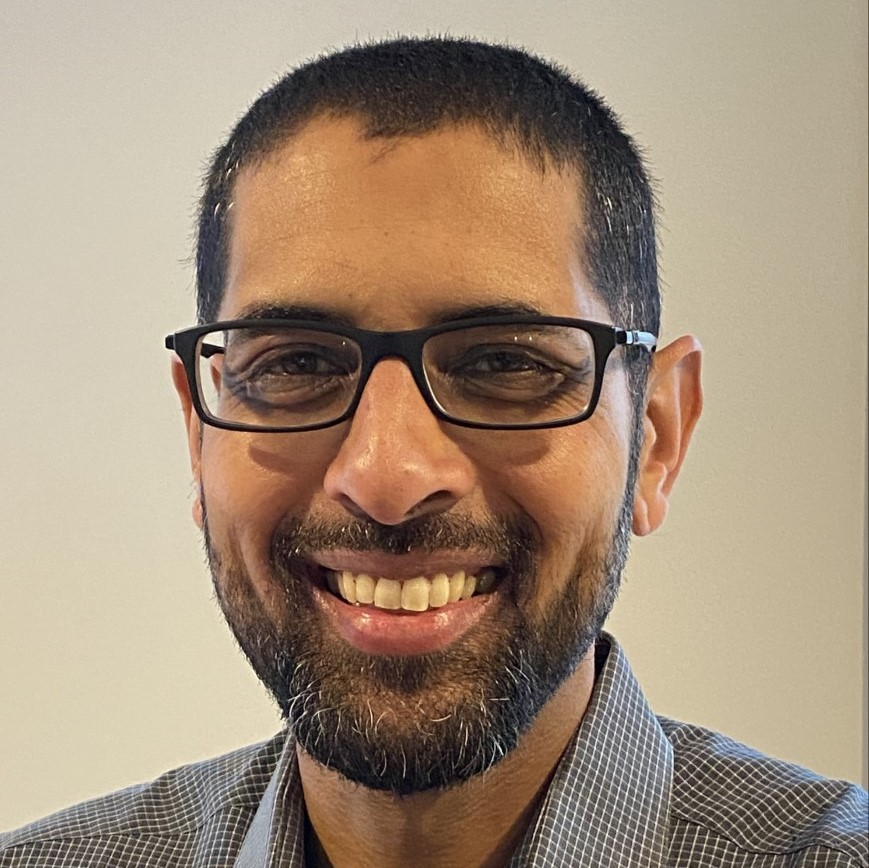
Neil Ganju
Research Oceanographer
U.S. Geological Survey
Biography:
I am a research oceanographer at the U.S. Geological Survey, Woods Hole Coastal and Marine Science Center, and a first-generation American, the child of immigrants from the mountainous region of Kashmir. Growing up in Miami gave me a passion for shallow water: I fished in the canals that drain the Everglades, snorkeled at John Pennekamp State Park, canoed in Florida Bay, and went slough-slogging in Big Cypress Preserve. I went to the University of Michigan intending to be a structural engineer, but midway decided I wanted a greener path, and switched to environmental engineering. After graduating from Michigan, I studied the Loxahatchee River estuary for my M.S. in coastal engineering at the University of Florida. I then took a position at the USGS in California, measuring sediment transport in San Francisco Bay. After a few years, I began a PhD program in civil engineering at UC-Davis while employed by the USGS. My research in the Bay ranged from observations of tidal-timescale flocculation dynamics to modeling of decadal-timescale geomorphic change. After graduating, I transferred to the USGS in Woods Hole, Massachusetts, and after a couple years of inner-shelf hydrodynamic modeling I made it back to estuaries. I am currently the chief of the Estuarine Processes, Hazards, and Ecosystems Project, leading a team that is tackling interdisciplinary problems including merging physical and ecological models in estuaries, developing national coastal change products, and quantifying wetland vulnerability to physical forcing. We have spent the last decade applying in-situ observations, numerical models, and remote sensing to inform management and restoration of state and federal coastal lands. I spend most of my free time surrounded by my family, friends, good music, and good food.
Statement:
Scientists are expected to conduct research with objectivity, and, arguably, without passion. In practice we are as passionate as professionals in any field. Early in my career my passion was understanding sediment transport processes. I would stand for hours on a marsh, wet and cold, to get the measurements I needed. I’ve since broadened my focus.
Now, I’m passionate about working on public lands to serve the widest constituencies. I’m passionate about developing better approaches in the study of those lands. I’m passionate about building a stronger workforce that represents and consists of the communities we serve.
My passions intersect with CERF’s mission, its newest initiatives, and its future trajectory.
- Make our science more relevant: CERF can develop stories that highlight successes in translating basic research into applied tools for coastal management. With these stories CERF can connect science with stakeholders and increase the visibility and support for estuarine science.
- Prepare our scientists for the present and future: Estuarine scientists need a broad skill set to access the best techniques. CERF can accelerate the use of modeling and geospatial techniques by hosting new workshop series, promoting special issues of ESCO focused on these topics, and facilitating the use of comprehensive data sets.
- Expand networking and mentoring programs: CERF’s Broadening Participation Comprehensive Plan lays a clear path for improving the strength of our federation through increased inclusion and diversity. The Rising TIDES program in a short time has proven successful in broadening opportunities for underrepresented students. I fully support these initiatives and will devote my energy to helping them expand.
I have served CERF in many roles: as an award committee chair, an associate editor for Estuaries and Coasts, and most importantly, a Rising TIDES mentor. I look forward to increasing my contribution and strengthening our federation.
|
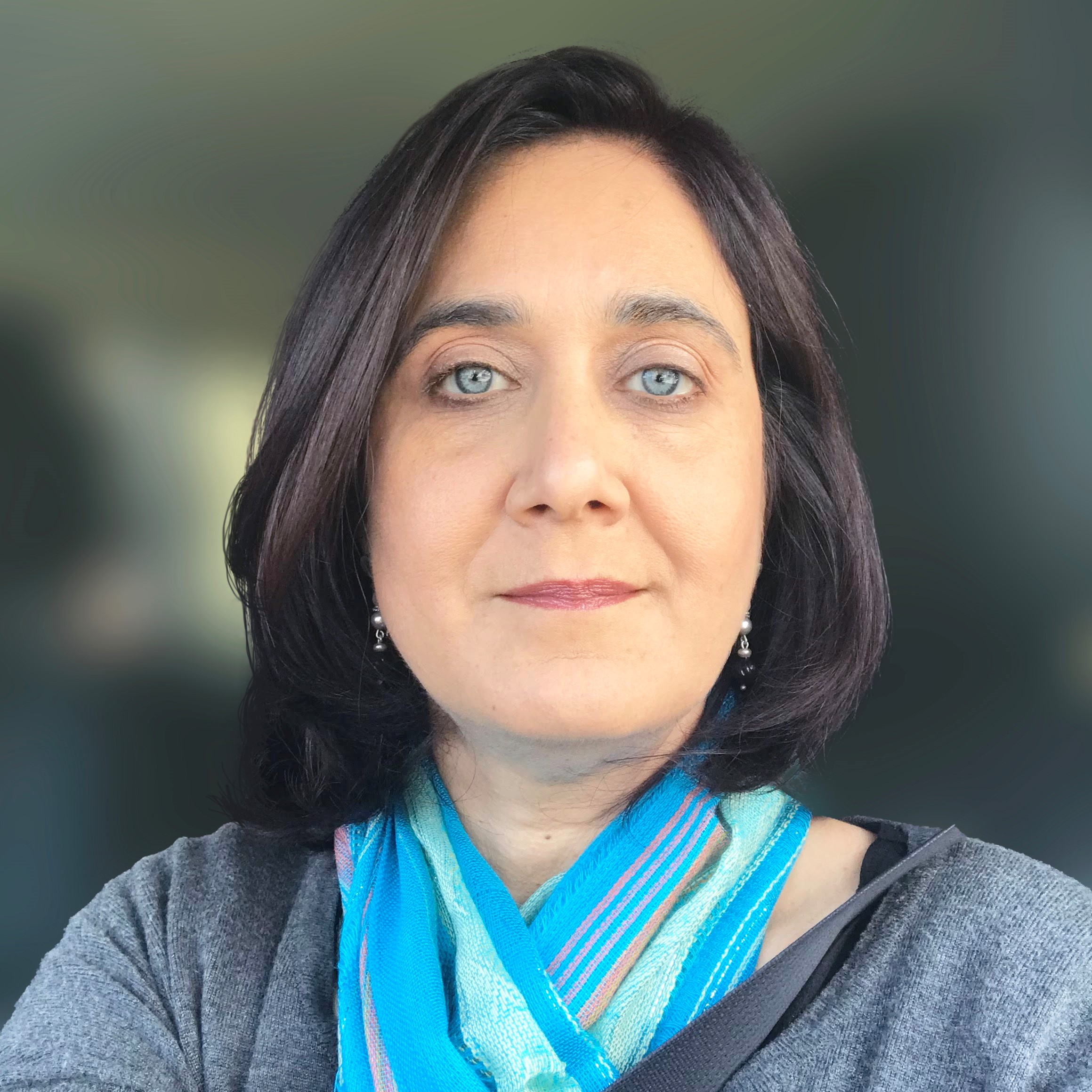 Sharon Herzka Sharon Herzka
Research Professor
Centro de Investigacion Cientifica y de Educacion Superior de Ensenada (CICESE)
Biography:
Sharon Z. Herzka’s research focuses on the ecology of marine fishes, isotope ecology, and oceanography. Her research spans hypersaline lagoons, estuaries, boundary current upwelling ecosystems, and oligotrophic open waters. Her publications reflect national and international interdisciplinary collaborations, including work with physical oceanographers, bird and marine mammal ecologists, aquaculture experts, molecular biologists, and bioinformaticians.
She has successfully led several research groups, most recently within the scope of an ambitious multi-institutional and interdisciplinary research project that gave rise to the Research Consortium for the Gulf of Mexico (CIGOM).
Born and raised in Peru, her family lived in Canada for 13 years. After finishing her graduate studies at the University of Texas at Austin’s Marine Science Institute (UTMSI) in 2000, she became a professor at the Center for Scientific Research and Higher Education of Ensenada (CICESE) in Mexico. She has used her diverse background and experience to lay bridges, make connections, and conduct interdisciplinary research.
Sharon Herzka has participated actively in CERF since attending the 1995 Biennial Conference in Corpus Christi, Texas, as a Master’s student. In addition to participating in CERF Conferences and co-chairing scientific sessions, she served as President of the California Estuarine Research Society (CAERS), a CERF Affiliate Society. She co-organized the CAERS annual meeting at CICESE in Baja California (2009), and the annual meeting at California State University Long Beach, in California (2012). She served on the CERF Governing Board as CAERS President (2011-2014) and subsequently as a member-at-large (2014-2017) and participated in elaborating the Visions IV Strategic Plan (2017-2022). In addition, she served on the editorial board of CESN (Coastal and Estuarine Science News). She was Co-Chair of the Scientific Program Committee of the Biennial Conference in Alabama in 2019.
Sharon has dedicated substantial effort to her education in organizational and administrative skills that complement her research capabilities, including Women in Leadership, Network Organization, Governance, and Mentoring. She is the proud mother of two budding scientists and enjoys cooking, reading, photography, traveling, and fieldwork. Sharon Herzka will join the faculty of UTMSI as an Associate Professor this August. She is excited and motivated to start a new professional chapter that includes continued service to CERF.
Statement:
The next few decades will require nimble estuarine and coastal scientific community responses. CERF members are keenly aware of the consequences of climate change-related impacts on the already stressed coastal and estuarine ecosystems worldwide. New and more complex scientific questions will likely emerge. They must be addressed quickly and effectively using an interdisciplinary approach achieved through decisive, inclusive leadership and convergent research. In addition, we must communicate science effectively to policymakers under often unfavorable political environments. CERF must provide opportunities to develop skill sets that allow us to work effectively in teams, undertake leadership positions, advise, and participate in policymaking, and communicate science while performing research with the highest scientific standards. Working closely with our members and the Affiliate Societies, we will build on our existing capacity in innovative ways to facilitate network-level collaborations, lead knowledge integration, and support the incorporation of sound science into policy in ways that maximize impact.
Women and minorities are still underrepresented in coastal and estuarine sciences. CERF has implemented successful programs to promote inclusive participation and increase organizational diversity. Recently, our leadership conducted a thoughtful analysis documenting the striking disparities in the participation of minorities in coastal and estuarine sciences, stakeholder engagement, and the creation of policies addressing social vulnerability (Harris et al. 2021, Estuaries and Coasts). Their analysis outlines specific actions that CERF has undertaken and must build on to achieve a more inclusive and diverse membership and provides a roadmap for a sustained effort. We will find innovative ways to provide a multifaceted support system that ensures that young coastal and estuarine scientists worldwide can succeed and positively impact coastal and estuarine ecosystems. Given that scientists face limited budgets and mechanisms for collaborating in many countries, CERF must also develop strategies to widen its international membership and foster collaboration.
Estuaries and Coasts currently has a hybrid model in which some publications are open-access. While open access is desirable to ensure the wide-ranging accessibility of scientific results, the high cost can be a barrier for some. Therefore, we must ensure that cost is not a limiting factor for publishing in our journal.
|
| |
Secretary
|
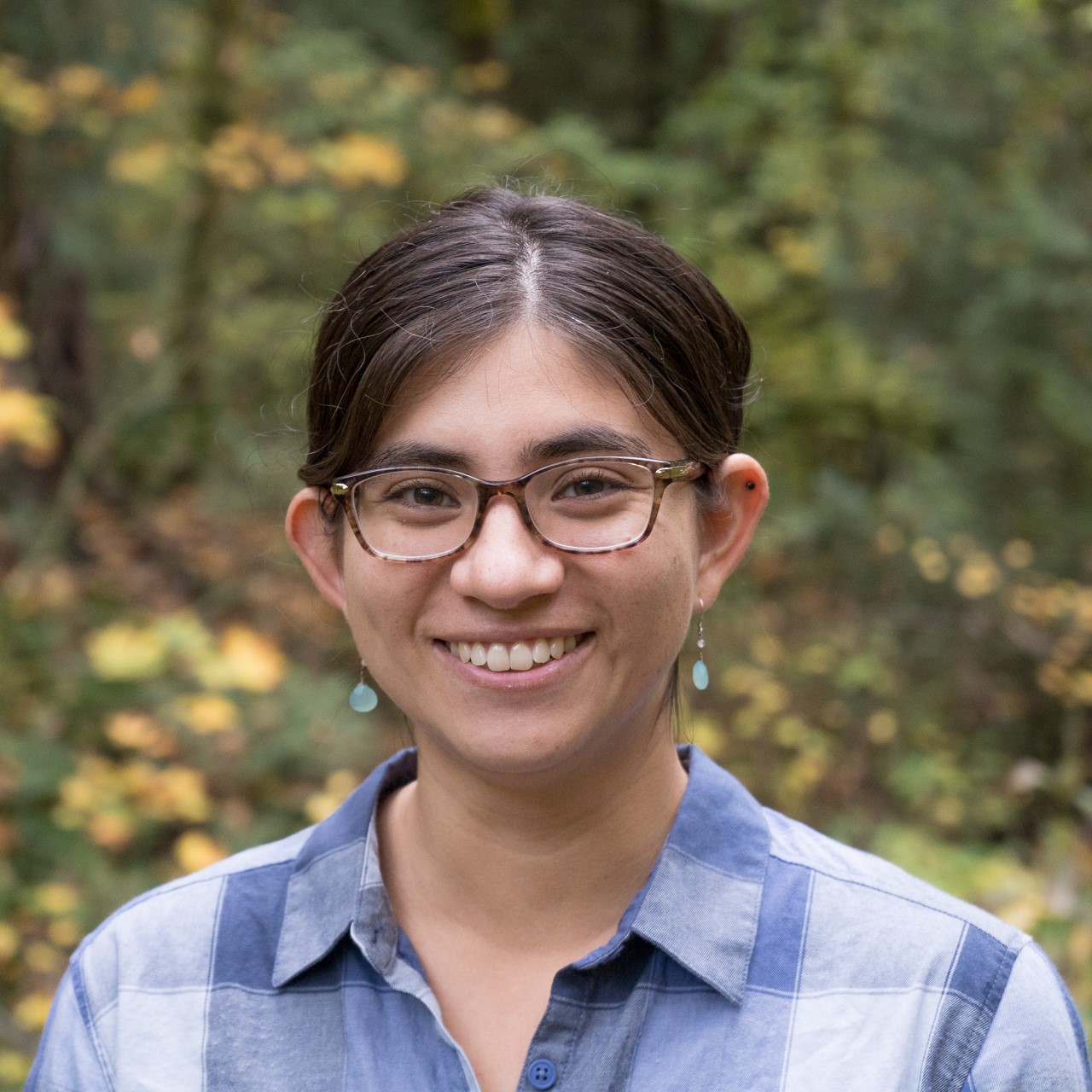 Lillian Aoki Lillian Aoki
Research Scientist
University of Oregon
Biography:
I am an ecosystem ecologist, and in my work I focus on understanding ecosystem dynamics–stability and change over space and time. I’m especially interested in ecosystem resilience and vulnerability to climate disturbances and extreme events. I’ve done much of my work in seagrass meadows, including study sites on both Atlantic and Pacific coasts, and I’m broadly interested in understanding the mosaic of coastal habitats that contribute important functions, services, and benefits. A formative experience for me was conducting my graduate work at the Virginia Coast Reserve (VCR), which is the site of a long-term and landscape-scale seagrass restoration (over 40 square kilometers of restored meadows established since 2001). My work at the VCR inspired my interests in ecological restoration, and in particular efforts to understand how ecological restoration can contribute to climate mitigation and adaptation. I have a fairly wide-ranging background, including experience in biogeochemistry, disease ecology, and data science, as well as field experience in many types of estuaries, which helps orient me to the depth and breadth of expertise across the CERF membership. I’m extremely enthusiastic about long-term data, team science, and interdisciplinary collaboration as critical tools to advance scientific inquiry, and I prioritize working with partners outside of academia (e.g., in government agencies and non-profits) to understand and maintain the applied context for my research. I first joined CERF as a master’s student in 2015, and CERF meetings have been a crucial professional home-base for me throughout my career.
Statement:
Like many, I have a strong attachment to CERF as the setting where I first formed my professional identify as a coastal scientist. I deeply value the CERF community, both as a place for sharing and learning science and as a broad network of professionals working across research, management, and policy for coastal issues. I am running to serve as CERF Secretary so that I can contribute to this community, especially to support the next generation of students and early career members who will find a professional home within CERF. I’m excited for the opportunity to be more engaged with the society, and to make sure we continue to offer opportunities to members from diverse backgrounds and lived experiences. In particular, as we emerge from the era of pandemic restrictions, I think we have a chance to creatively reimagine scientific activities to help build an inclusive and equitable community–recognizing for example that while in-person meetings have incredible value, hybrid and virtual events can greatly increase accessibility. As CERF Secretary, my goals will include identifying ways that CERF can benefit students as they transition to professional careers, as well identifying how CERF can support members in the new era of data science and open science, for example, by building communities of practice around these topics. The existing SAV mapping and monitoring community of practice provides a great example of how CERF can advance shared interests around a specific topic. Finally, I’m excited about working to strengthen ties with partner organizations, including Affiliate Societies and other scientific societies, in order to advance estuarine and coastal science, management, and policy to broad audiences and membership. I would be an active and enthusiastic member of the governing board, and I’m eager to put time and effort into giving back to the CERF community.
|
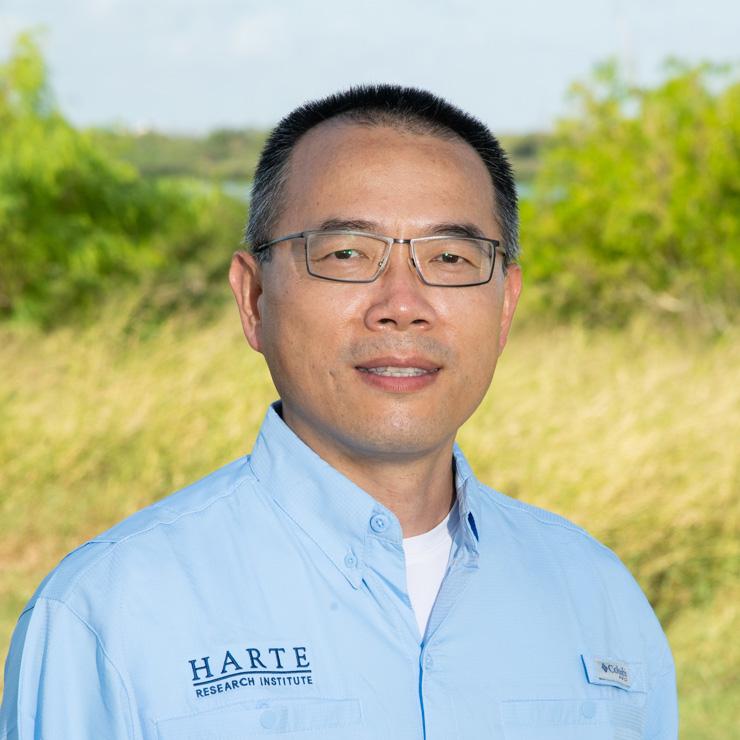 Xinping Hu Xinping Hu
Chair for Ecosystem Science and Modeling, Harte Research Institute for Gulf of Mexico Studies
Texas A&M University - Corpus Christi
Biography:
I hold the position of Chair for Ecosystem Science and Modeling at the Harte Research Institute for Gulf of Mexico Studies (HRI), Texas A&M University-Corpus Christi (TAMU-CC). My academic journey started with a BS degree in chemistry from Peking University in China, followed by PhD degree in oceanography from Old Dominion University. After completing postdoctoral training at the University of Georgia I briefly worked as a research scientist there before joining TAMU-CC. Two years ago, I joined the HRI while continuing my academic appointment with TAMU-CC. I have served as a Topic Editor for the EGU’s journal Ocean Science, and previously an Associate Editor for Frontiers in Marie Science. From 2021, I have been a Scientific Steering Committee member for the U.S. Ocean Carbon & Biogeochemistry Program, and I am also the Co-Chair for the Science Working Group of the Gulf of Mexico Coastal Acidification Network. My research programs have been primarily funded by NOAA and NSF, and I have been fortunate to receive the Faculty Early Career Development Award from the latter. My research focuses on coastal and estuarine carbonate chemistry and coastal carbon cycle under the changing climate and ocean conditions. My passion for these topics stems from not only my academic training but the concerns about the impact of these changes on both the natural environments and the society’s livelihood. Over the years, I have had the pleasure working with senior “CERFers” ranging from a PhD committee member to mentors in the early years of my professional career, as well as collaborators and the younger generations of scientists. I have thoroughly enjoyed their companionship and support. Now I feel that it is time to give it back. Serving as the CERF Secretary will be a perfect opportunity for me to contribute to the community.
Statement:
Compared to many peers at a similar stage in their careers, my involvement with CERF is perhaps relatively short. I became a CERF member after I moved to TAMU-CC a decade ago. Since then, I have had the pleasure of meeting and working with a group of passionate and dedicated estuarine and coastal scientists and practitioners, including leaders in their respective fields. My professional development on estuarine research owes a great deal to these colleagues. Since I joined CERF, I appreciate the collaborative and inclusive environment that CERF fosters, especially through the biennial meetings as well as regional society meetings where students are able to showcase their research and receive valuable feedback. I am passionate about mentoring the next generation of coastal and estuarine scientists and practitioners and providing a steppingstone for their growth. Over the years, I have been fortunate to have worked with outstanding students who have probably taught me as much as what I had to offer, if not more. It is inspiring to see these students go on to develop successful research and management careers of their own. In addition to education, I am also committed to using scientific findings for solving practical challenges faced by the coastal communities. As a member of the governing board and the CERF secretary, I would work diligently to promote education and amplify the voice of early career members to a wider audience; I would also promote finding solutions using the best science, through broad collaborations among different disciplines and sectors. Finally, I would also seek to expand the CERF membership base while striving for greater diversity, equity, and inclusion.
|
|
Member-at-Large
|
|
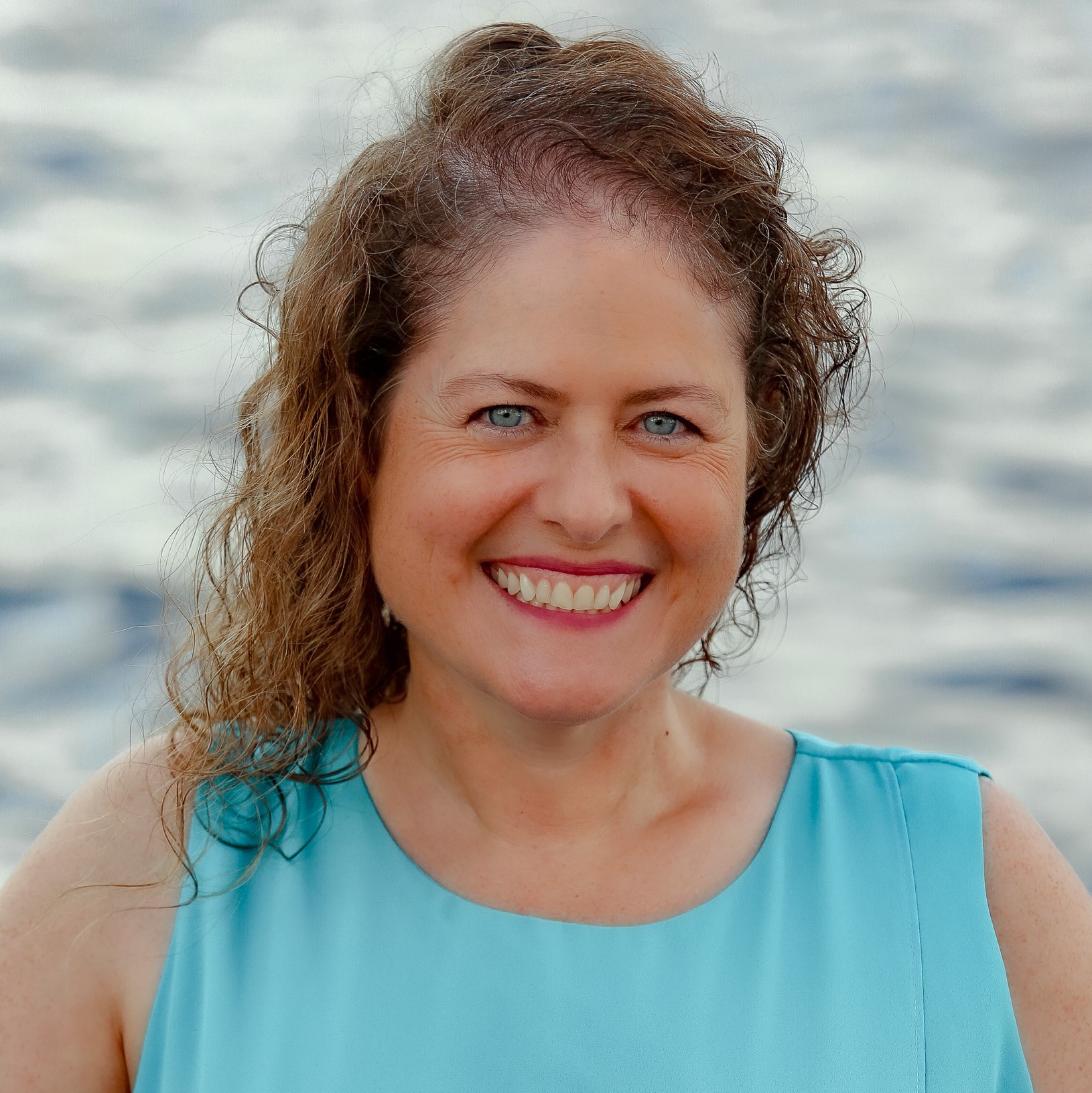 Cassondra Armstrong Cassondra Armstrong
Coastal Ecosystem Section Administrator
South Florida Water Management
Biography:
Like many of you, I began my scientific career playing in and around the waters of the Chesapeake Bay as a kid. I took note of the things I saw like the tidal fluctuations, crabs swimming piggyback, and most importantly when the “stingernettles” took over the water, and I couldn’t go swimming. Mom told me about the grass that used to be in the water, but all I saw was dark green water. In high school I learned these things had names like eutrophication, seasonality, and hydrodynamics. I was hooked. I spent my grad school days understanding how salt marshes function and respond to sea level rise. Then I went to south Florida where every drop of freshwater is highly managed, and natural environments are mostly gone or significantly altered. After recovering from shock, I got to work figuring out how to restore the Everglades by undoing the impact of generations of eutrophication. That work got interrupted by the BP oil spill and a quick stint in Louisiana to document how bad it was. Upon my return to south Florida, I switched my focus to freshwater inflow to the “northern” estuaries, the Caloosahatchee and St. Lucie. In these highly-managed systems, we have to “get the water right” in order to create and maintain conditions suitable for all the valuable ecosystem functions that make estuaries so important. No small feat when having to also consider the needs and wants of the 9 million stakeholders living in south Florida. Most recently I find myself venturing into the world of harmful algal blooms, how to monitor them, model them, and hopefully manage them.
Statement:
I belong to several organizations, but CERF is my home, CERF is family. As has been the case with many others, I was introduced to CERF as a student and found a friendly, welcoming, supportive group that became instrumental in my career. The networking, jobs board, public speaking opportunities, and leadership skills development provided by CERF have been invaluable to me and keeps me coming back for more. I view my membership in CERF as an investment in myself and well worth the annual fee. However, membership numbers in all organizations have taken a hit with Covid and economic uncertainty. CERF cannot be a valuable organization without members. I am so proud that CERF has put diversity and inclusion as a top priority. Building our organization from a wide foundation will only make us stronger. As Member-at-Large, I will work hard to help build a diverse membership, especially at the all-important student level. This includes working with the affiliate societies, where most students get their start. As a former Southeastern Estuarine Research Society (SEERS) president, I had the honor to briefly serve on the CERF Board and was truly moved by the dedication, creativity, and care the Board devotes to making CERF the wonderful organization it is. I look forward to being able to contribute to making a young student, presenting for the first time, feel welcomed and encouraged and want to make CERF their family.
|
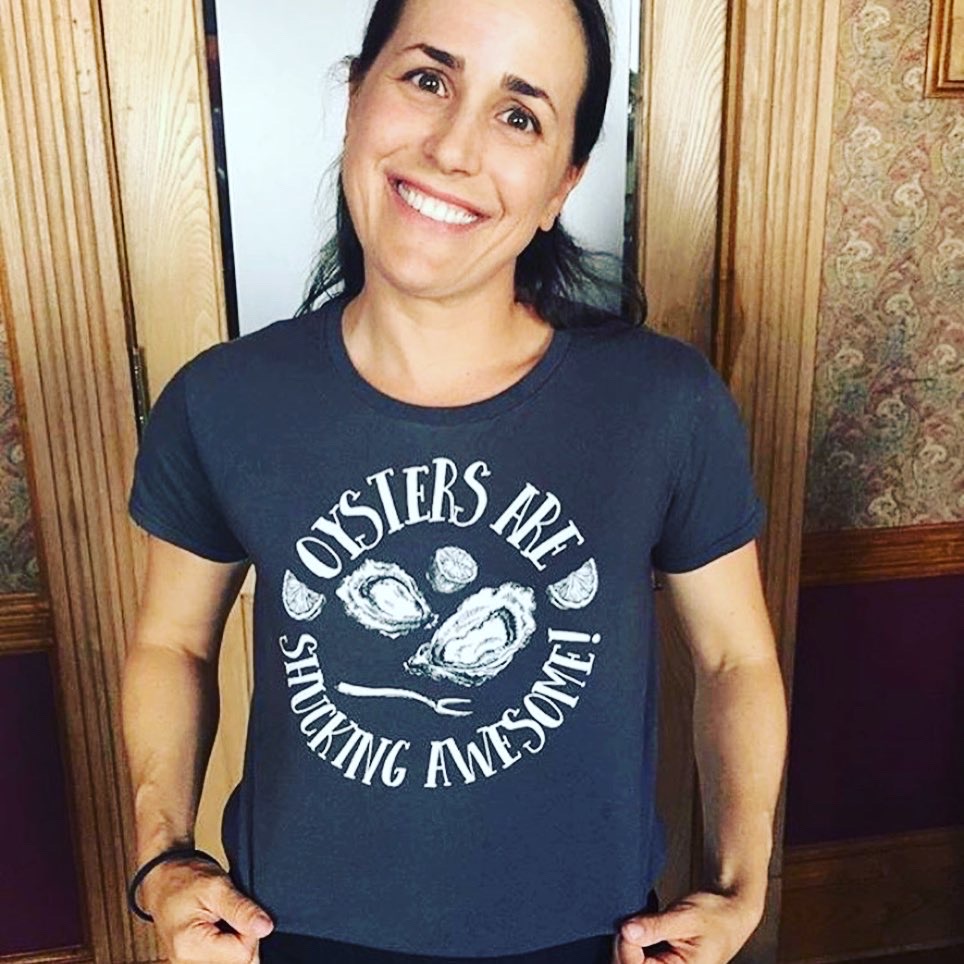
Allison Fitzgerald
Associate Professor of Biology
New Jersey City University
Biography:
After getting my PhD (City University of NY), I wanted to stay local and continue to work on restoration within the Hudson Raritan Estuary and settled at this small university in Jersey City.
My research and passions focus around the intertidal zone in urban NY/NJ–oysters, crabs, salt marshes, small invertebrates, fishes, and the urban world that affects these organisms (pollutants, removal of habitat, CSO runoff). My lab works closely with local non-profits to engage in citizen science and outreach to our local community. By involving local citizens, we can help to increase awareness and advocacy on key issues such as safe access to water, consumption advisories, and plastic pollution. Citizen science and youth education (preK-5 focus) are the parts of my job I love the best; being able to explain how the work we do affects the real world, and seeing kids light up the first time they see a live animal! As a mom of two young girls, it is important to show the youth how they can work to preserve the shorelines and oceans for future generations.
Since 2010, I have worked with a local non-profit, NY/NJ Baykeeper, as the NY oyster program coordinator. We have a 5-acre subtidal plot in the lower Bronx River that has been undergoing various restoration projects since 2006; here we are able to work with other non-profits and universities on new techniques, citizen science data collection, and education and outreach to the local community. I love being able to bring both sides of myself–academia and non-profit–to the table when discussing restoration and outreach in the estuary and hope to share both of those perspectives with CERF.
Statement:
I have been going to CERF meetings since graduate school, and in 2019 started getting more involved in the society. I have been the Associate Editor and Editor of the CERF’s Up bulletin for the past four years, as well as an active member of the Broadening Participation Council. I have helped organize the Rising TIDES Conference Program, taken trainings recommended by the BPC in effective mentoring, and am the chair of the CERF 2023 family friendliness committee. I would like to be on the Governing Board to learn more about how CERF operates, but also to work with CERF to fully engage smaller schools, community colleges, and Minority Serving Institutions (MSIs) that have active marine science programs. I bring to the board the perspective of working at an MSI, with most students being Hispanic and also first-generation college students. Many are immigrants, DACA students and refugees. These students have many financial, cultural, and educational hurdles to overcome in getting their degree. NJCU is also a primarily undergraduate university, which means we have a small research budget, but we are fortunate to have several federal grants that allow for students to receive a stipend–no student should have to volunteer to work when they can’t afford it. These grants allow students to fully participate in research without worrying about loss of income. With this background, I know that a lot of good work, good teaching and good research goes on in locations outside of large R1 and R2 schools, and we have a wealth of untapped talent in these institutions; these students (and their mentors) should be a part of CERF and finding ways to make that happen is high on my list of priorities. MSIs may need more incentives and help to participate in CERF (reduced costs, scholarships), but partnerships with larger universities may be an option that CERF can facilitate. Another priority would be to increase engagement with non-profits; while we have several who regularly participate in and attend CERF conferences, cost and travel can be prohibitive to others. Working with non-profits would add to the breadth of projects CERF shares and create more connections with management.
|
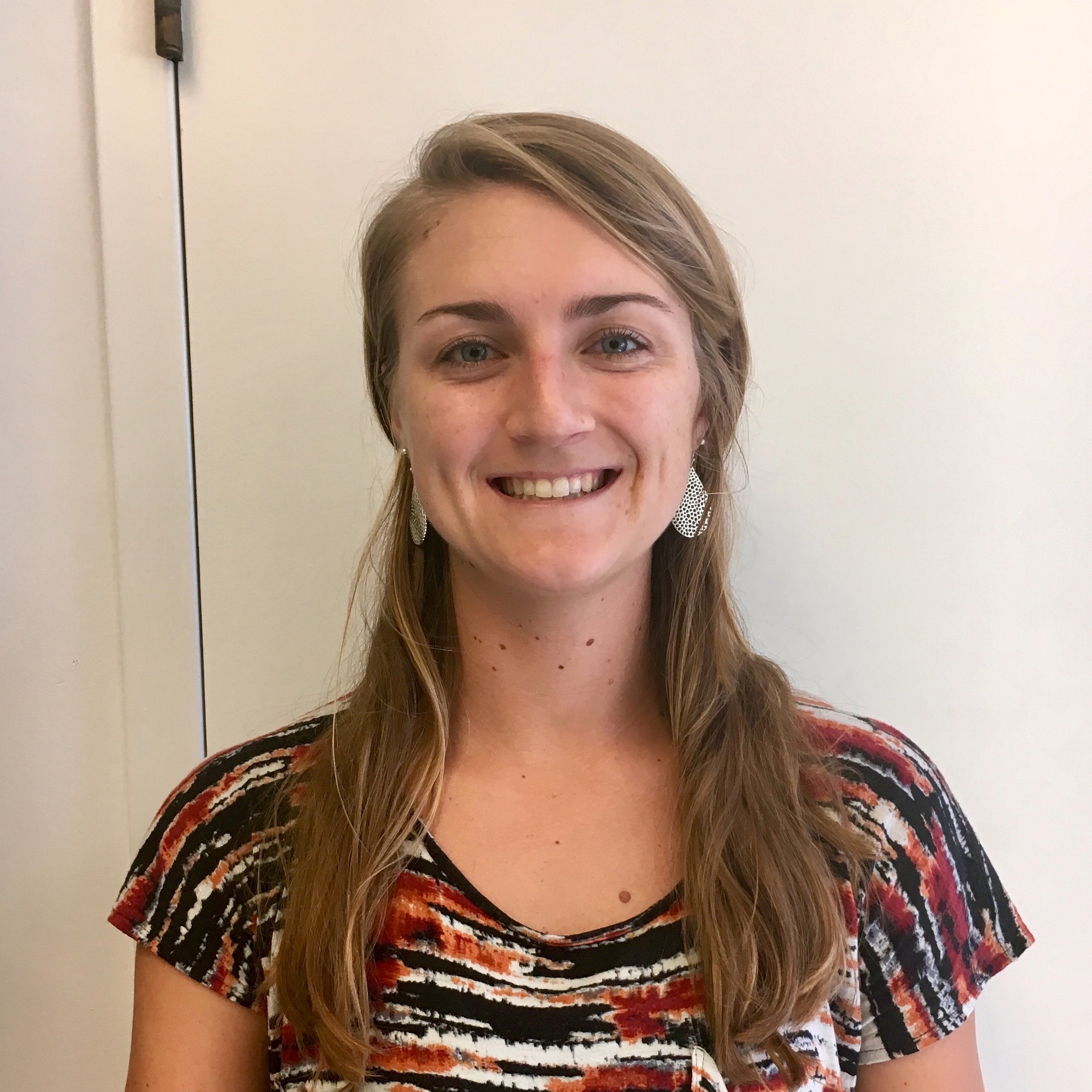 Jan Walker Jan Walker
Ecologist
Southern California Coastal Water Research Project
Biography:
I am an estuarine and coastal ecologist at the Southern California Coastal Water Research Project (SCCWRP). I specialize in developing assessment tools and programs for coastal ecosystems, specifically estuaries, beaches, and dunes. Over the last three years, I’ve been focusing on developing condition assessment tools for estuaries and other marine habitats, as well as causal assessment methodologies to identify and predict potential stressors to these ecosystems. Currently, I am building a binational monitoring program for estuaries in California and Baja California, Mexico. This work includes an extensive number of partners in both countries, including academics, NGOs, and agencies. Our long-term goal is to create a sustainable program to help coastal communities identify potential areas of management and build resilience over time. My role at SCCWRP is unique in that I have the opportunity to bridge multiple sectors. From working with academics to managers and regulators to consultants, I am able to witness science and research turn into meaningful action.
Prior to SCCWRP, I received my B.S. in environmental science at the University of Virginia in 2015 and my Ph.D. in marine ecology from the joint doctoral program at University of California, Davis and San Diego State University in 2020. Spanning both coasts, I’ve been able to find community in both the Atlantic Estuarine Research Society (AERS) and California Estuarine Research Society (CAERS), and I look forward to giving back to these communities. I am currently on the executive board for CAERS, where we are working to reconnect our community following COVID. I strongly believe that CERF and the affiliate societies can provide students and early career professionals the connections necessary to help them build a meaningful career. I am incredibly fortunate to have spent the last ten years experiencing and studying beautiful coastal and estuarine ecosystems. As a Member-At-Large of the CERF Governing Board, I will work to make sure others can experience and research these incredible systems too.
Statement:
I’ve been truly lucky to have incredible mentors supporting me and encouraging me along my professional journey. It was these mentors that introduced me to CERF and aided me in attending my first ever professional conference in Portland, Oregon, at the 2015 CERF conference. It was here that I connected with my future academic advisor at UC Davis. Fast forward four years, I would later meet and network with my current boss in Mobile, Alabama, at the 2019 CERF conference. I owe many of my professional connections and career opportunities to the platform that CERF provides, and it’s this legacy that I hope to continue and improve by serving on the CERF Governing Board.
My vision for CERF is to increase connections between professionals and students that eliminate barriers to involvement for both groups. I believe it is important to recognize that there are societal and structural barriers in place that prevent full participation in STEM fields from marginalized groups. Therefore, it is crucial to provide resources to both professionals and students to encourage effective mentorship, beneficial trainings and internships, and open-minded communication and connection. I believe that it is from these connections that high-quality and impactful science is produced. By recruiting and supporting members across all axes of diversity, the Federation can become a more powerful vehicle for the membership to advance the understanding and stewardship of estuarine and coastal ecosystems worldwide.
|
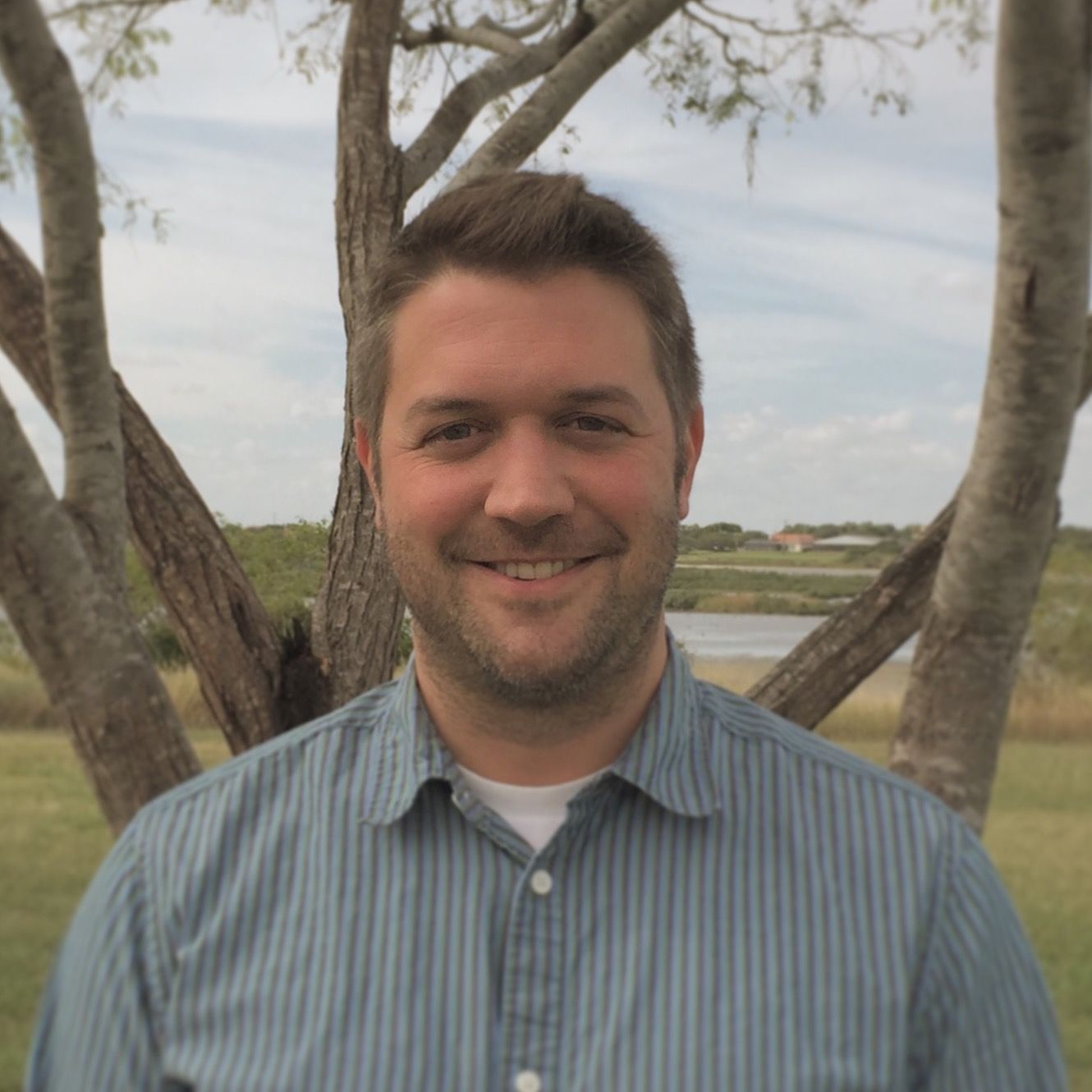
Benjamin D. Walther
Associate Professor
Texas A&M University - Corpus Christi
Biography:
I am an Associate Professor of Marine Biology in the Department of Life Sciences at Texas A&M University – Corpus Christi. I have been a member of CERF since 2009, and I currently serve as a Member-at-Large for the Gulf Estuarine Research Society (GERS) and was the co-chair of the Scientific Program Committee for the recent GERS 2022 Biennial Meeting. I have also been an active member within CERF to help organize biennial meetings of the parent society. I served as a co-chair of the Workshops Committee for the 2019 biennial conference in Mobile, AL, and most recently served as co-chair of the Scientific Program Committee for the 2021 biennial conference that was conducted virtually. In my academic life, my research focuses on quantifying the movements and ecological interactions of mobile fishes and other organisms in coastal habitats, with an emphasis on using geochemical techniques to reconstruct individual and population responses to environmental stressors such as hypoxia. My work is strongly oriented towards Gulf of Mexico systems that are subject to anthropogenic change that is increasing the impact of drought, low oxygen, and contaminant loading that can alter habitat distributions and trophic interactions. I am a proud mentor of graduate and undergraduate students and am thrilled to help train and promote their development as independent scientists. I received a B.A. in Liberal Arts and a B.S. in Biology from the University of Texas at Austin, followed by a Ph.D. in Biological Oceanography from the MIT/Woods Hole Oceanographic Institution Joint Program. I then completed two postdoctoral fellowships in Australia at the University of Adelaide and Australian National University before returning to the United States to begin my faculty positions in 2009.
Statement:
I am thrilled at the prospect of serving CERF as a Member-at-Large on the Governing Board. CERF is a natural home for my scientific interests given its strong interdisciplinarity and welcoming atmosphere for researchers at all stages of their career. My own graduate and undergraduate student mentees often attend CERF conferences as their first scientific meetings, and I am eager to continue and expand the CERF mission to provide an inclusive and supportive opportunities for students to share their science with the wider community. In my capacity as a member of the scientific planning teams for two CERF biennial conferences, I learned how vital it is for CERF to adapt and increase their efforts to ensure the society and its meetings are proactive and forward-thinking in their design and implementation of representational, structural and interactional inclusion strategies (as eloquently discussed by Harris et al. 2022 Estuaries & Coasts 45:38-48). As a member of the LGBTQIA+ community, I am acutely aware of the overt and ‘shadow’ barriers arising from individual and institutional prejudice can prevent scientists from diverse demographics from fully participating in society-supported activities. I would be excited to serve as a Governing Board member to help implement the society’s Vision IV Strategic Plan and develop its next iteration as our society moves forward. In addition, I could provide strong connections to ‘sibling’ scientific societies such as the American Fisheries Society to help break barriers among scientific siloes. Through these efforts, I would be an active and engaged Governing Board member to ensure CERF is a scientifically rigorous society that welcomes all current and future members to our community.
|
| |
Student Member-at-Large
|
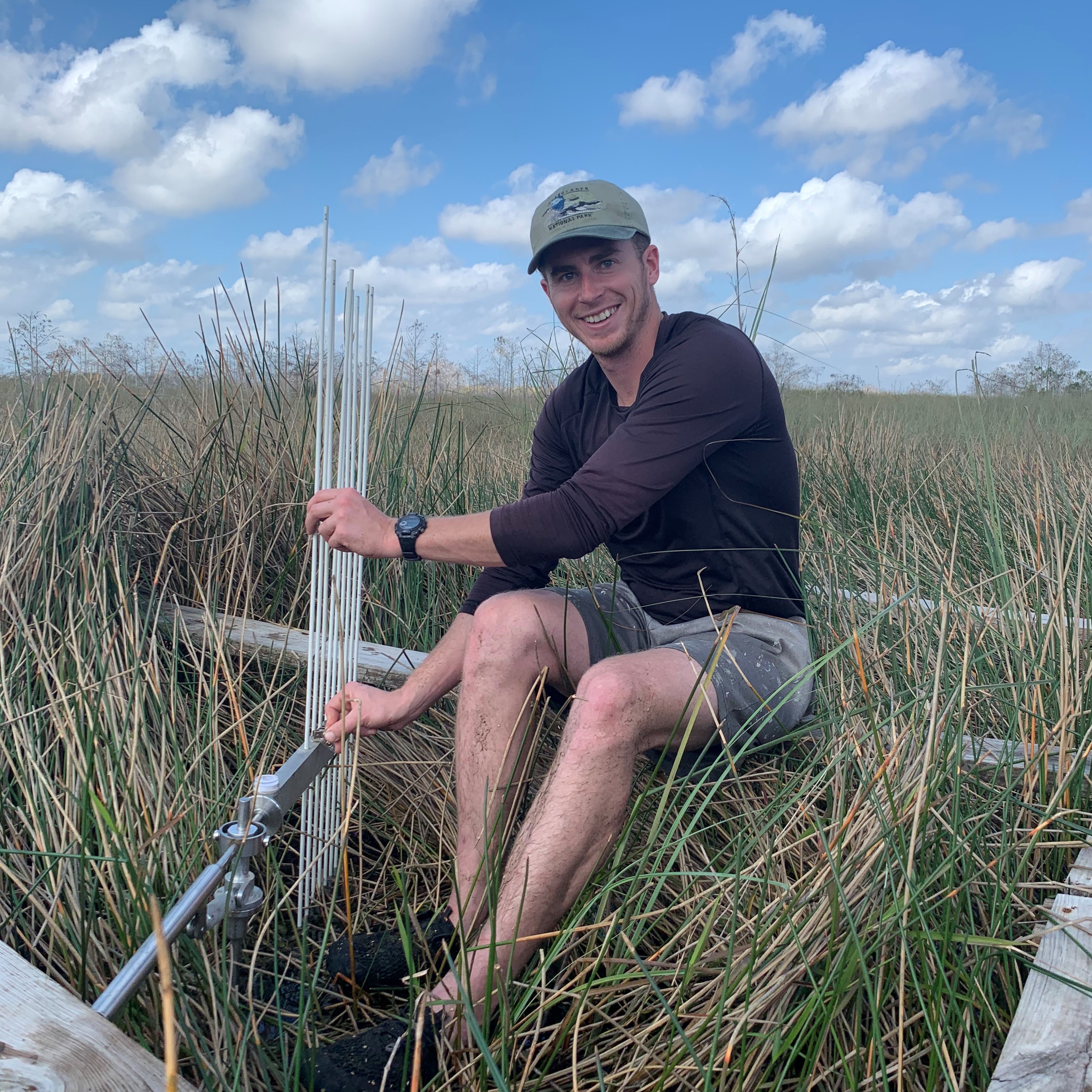 Lucas Lamb Lucas Lamb
Ph.D. Candidate
Florida International University
Biography:
Lukas Lamb is a Ph.D. Candidate at Florida International University working within the Florida Coastal Everglades Long-Term Ecological Research Network (FCE-LTER). His dissertation research focuses on evaluating “peat collapse” across coastal Everglades marshes impacted by declines in freshwater flow and saltwater intrusion. His research generally focuses on biogeochemistry, and integrating field- and remotely-sensed data across spatial and temporal scales. Lukas has been an active member of the ecological community, serving in many roles including president of the FCE-LTER graduate student group, secretary of the Ecological Society of America’s student section, and student representative to the ESA governing board. He has led or co-led organized numerous science workshops and public events, while also being an advocate for Everglades Restoration in south Florida, both to policy-makers through congressional briefings and to the general public, through speaking and blogging.
Statement:
Graduate programs can lag behind trends in career opportunities in coastal sciences, as non-academic options have increased. Professional societies such as CERF can aid in providing varied professional trainings and information not found in most undergraduate and graduate programs. These pipelines of information can help early-career scientists of all backgrounds and career stages understand and prepare for jobs not only in academia, but in government, non-profits, and industry, which require many skills not traditionally taught in coastal science degree-earning programs. As a member of the Governing Board, I would help develop resources for all career stages of early-career scientists on a wide-range of topics related to succeeding across the wide-range of career paths in the coastal estuarine sciences. My goal is for these resources and initiatives help promote a more diverse and inclusive space in coastal sciences where early-career scientists of all backgrounds can be become better prepared for the needs of their career options.
|
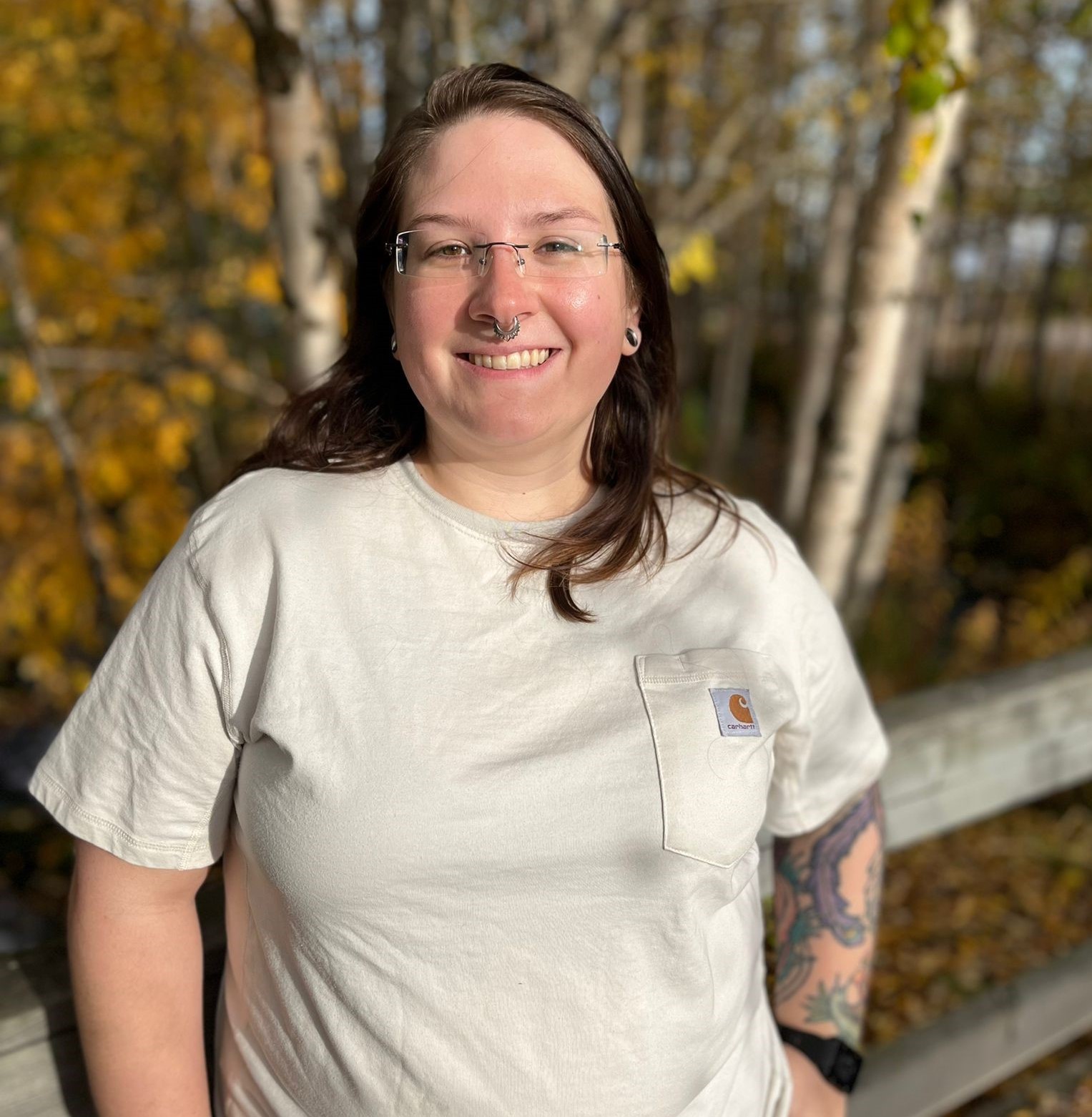 Sommer Starr Sommer Starr
Ph.D. Student
Florida State University
Biography:
I am a student at Florida State University pursuing my Ph.D. in Chemical Oceanography in Tallahassee, Florida. My research focuses on wetland biogeochemistry, with an emphasis on how human activities are changing biogeochemical cycles at different scales. I recently completed my M.S. in Biology at the University of Alabama, where I received an NSF graduate research fellowship and studied the drivers of nitrogen cycling functional return in constructed coastal marshes.
As a first-generation student and veteran, making coastal science accessible to everyone is a very personal issue for me. As such, outreach and accessibility in science are some of the core values that guides my career. These values are reflected in my participation in local and national science outreach programs including teaching at a science and conservation themed summer camp in Atlanta and helping found a student conservation organization at the University of Alabama. My background and experience have prepared me to serve CERF and all student members as the Student Member-at-large on the 2021-2023 governing board.
Statement:
I first attended CERF in 2019, where I was able to present my research at my first international conference and participate in CERF’s Rising TIDES mentorship program. CERF provided a welcoming environment to communicate and network with other scientists. I want to serve on the board to give back to the community that eased my transition between non-traditional student and early career scientist. If elected, I plan to work with the board to continue to bridge the gap between underrepresented groups and science communication, specifically by:
- Creating resources to connect non-STEM experts on social justice issues (i.e. economists, social scientists, policy makers) with coastal scientists as they relate to not only education and employment, but the effect of research on coastal communities, especially those of marginalized communities.
- Continuing to provide networking opportunities and skills-based training for students and other early career professionals across career fields, including industry, academia, and non-profits
- Continuing to expand and support CERF’s diversity and inclusion initiatives
CERF has made a difference for me early in my career, and I hope to participate in CERF as the student member-at-large to be able to continue making a difference for other young scientists. |
|


 Sharon Herzka
Sharon Herzka Lillian Aoki
Lillian Aoki
 Cassondra Armstrong
Cassondra Armstrong
 Jan Walker
Jan Walker
 Lucas Lamb
Lucas Lamb